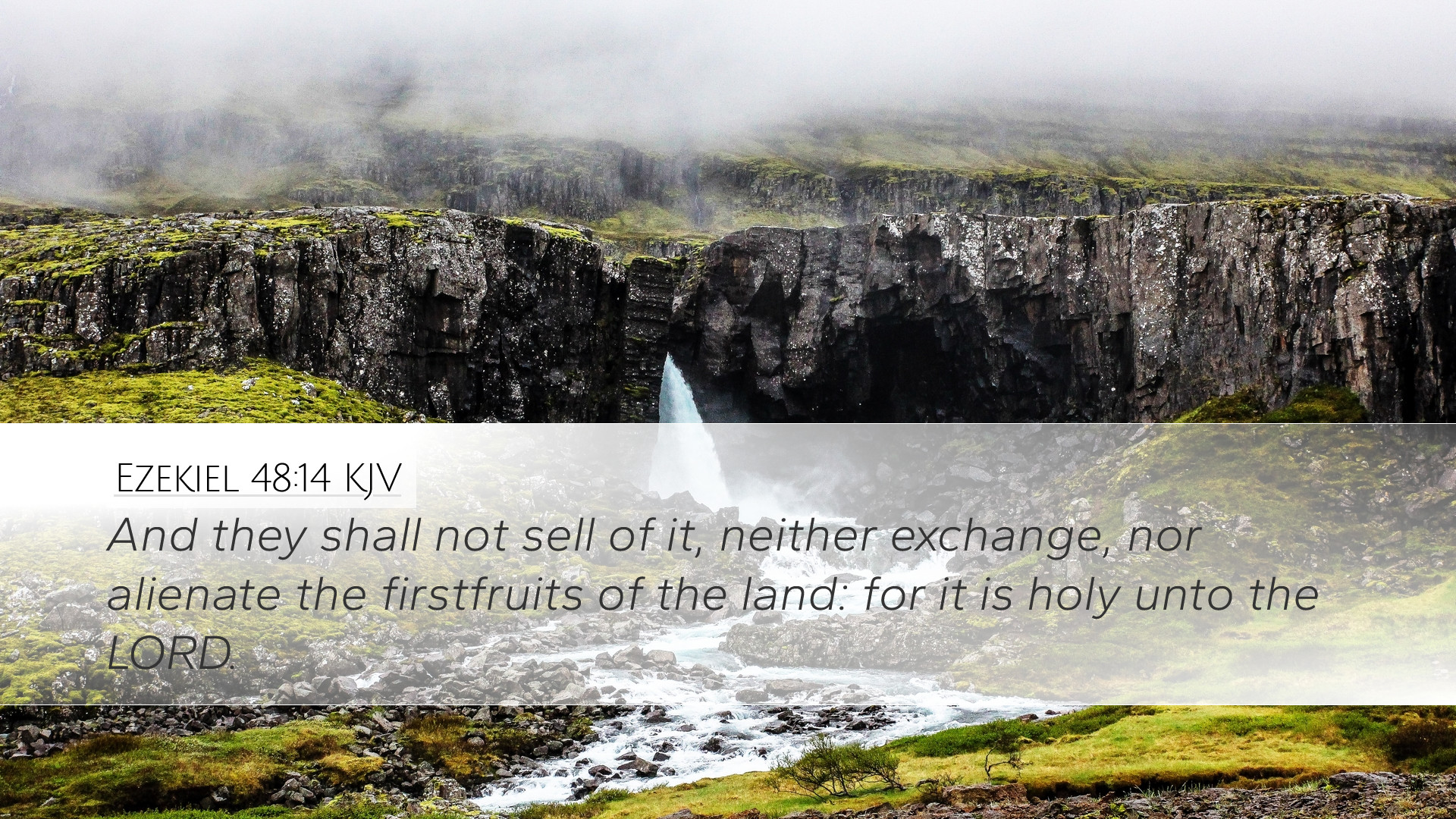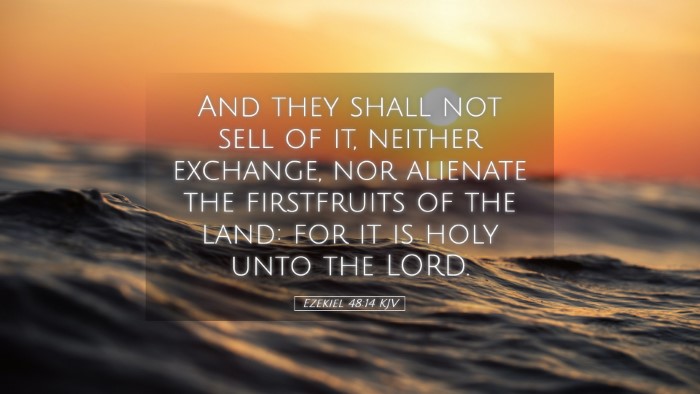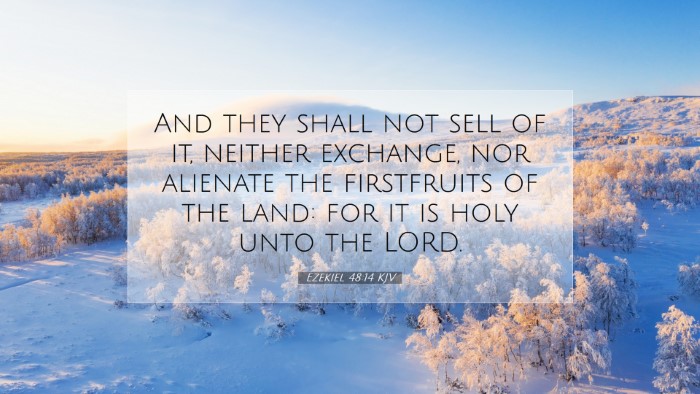Bible Commentary on Ezekiel 48:14
Ezekiel 48:14: "And they shall not sell of it, neither exchange, nor alienate the firstfruits of the land: for it is holy unto the Lord."
Introduction
This verse is part of Ezekiel’s vision concerning the distribution of the land among the tribes of Israel after their return from exile. It expresses deep theological and practical significance regarding the sacredness of the land and the privileges associated with it.
Contextual Analysis
The book of Ezekiel is notable for its prophetic messages centered on judgment and restoration. Particularly in the latter chapters, Ezekiel outlines the ideal state of Israel, including the temple, city, and the land division. The directives given in this concluding part emphasize the holiness of both the land and the people.
Key Themes
- The Holiness of Land: The land is portrayed as holy, set apart for God’s purposes. This idea is fundamental for understanding the Jewish conception of land.
- Provision for the Priests: The regulations regarding the land and its use reflect God's desire to provide for those who serve Him, namely the priests and Levites.
- Sacred Privilege: The people of Israel were entrusted with the land not merely as an inheritance, but as a sacred trust. The forbidden actions of selling, exchanging, or alienating signify a breach of this trust.
Commentary Insights
Matthew Henry (1662-1714): Matthew Henry emphasizes that the land serves as a symbol of God’s favor and presence among His people. He points out the significance of the land being retained and not sold or exchanged, as it epitomizes a lasting covenant between God and Israel. Henry remarks that the land being “holy unto the Lord” reinforces its dedicated status as belonging to God. He cautions against the temptations that may lead to the profanation of what is deemed sacred.
Albert Barnes (1798-1870): Albert Barnes sheds light on the socio-economic implications of this principle. He comments that selling or exchanging the land would undermine the stability and welfare of the people, suggesting that God's provisions are designed for their good. Barnes articulates that the permanence of the inheritance is a reflection of the permanence of God’s promises. He reinforces that such measures are to maintain the integrity of Israel's identity as a chosen people, dedicated to the Lord.
Adam Clarke (1760-1832): Adam Clarke takes a more detailed approach in his commentary, elucidating on the theological implications of land ownership and stewardship. He notes that these regulations serve both a practical and spiritual purpose, promoting a community that honors God and remembers their history. Clarke indicates that the prohibition of alienating the land acts as a reminder of Israel’s dependency on God, who sustains them in every aspect of life.
Theological Implications
This verse resonates deeply within the framework of theological study, emphasizing the overarching theme of God’s ownership over all creation. Not just the physical lands, but indeed the entirety of existence is consistently pointed to as His. The holiness associated with the land provides a substantial basis for understanding covenant relationships—both in Ancient Israel and in the contemporary faith community.
Application for Today
For pastors, students, and theologians, Ezekiel 48:14 serves as a vital reminder of the call to uphold the sanctity of what God has deemed holy. In a modern context, this may apply to various aspects of ministry, including stewardship, community, and witness. Integrity in the utilization of resources, the church's property, and even personal gifts must be handled with the reverence that is due to God.
The implications stretch beyond literal land ownership; they invite believers to consider the 'land' in which they operate—fields of influence, callings, and vocations. Each of these areas requires sacred reverence, a commitment to holiness, and an understanding of divine purpose.
Conclusion
Ezekiel 48:14 encapsulates a profound essence of holiness, identity, and stewardship. The integrative insights from Matthew Henry, Albert Barnes, and Adam Clarke illuminate the rich tapestry of theology surrounding this verse. As we reflect on this passage, we are called not only to recognize the historical context and implications but to live in a manner that honors the holiness of God in every facet of our lives.


